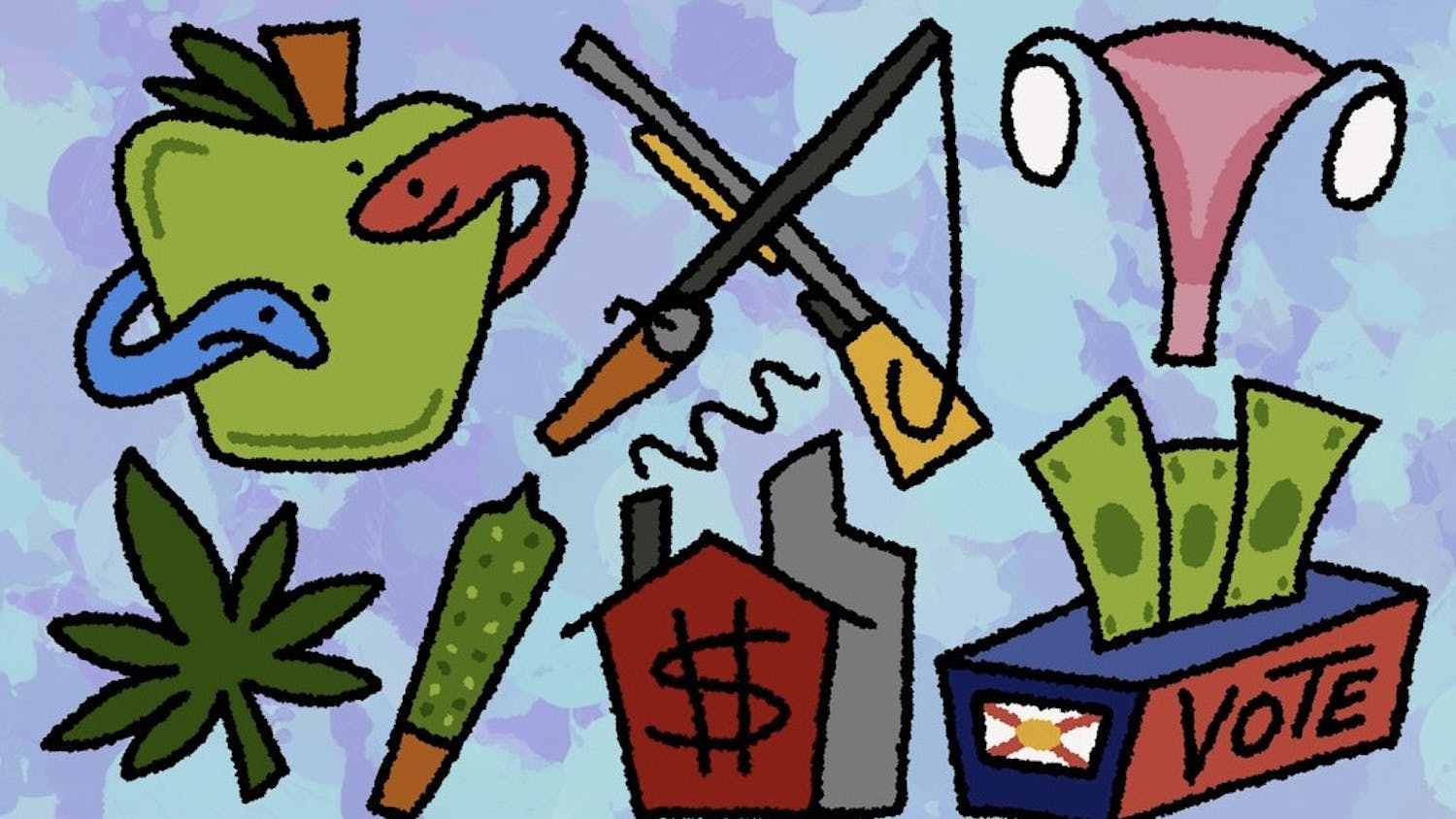I’ve been working with the Alligator for nearly a year, first as a columnist and now as Opinions editor. As my time here at UF comes to a close and as I wonder about my own future, I feel more strongly than ever that the future of us all depends in no small part on the Internet.
Before I get into the meat of that topic, I’d like to say a few words about my own positions. I’ve expressed many libertarian ideas in my pieces for the Alligator. I wish to make it clear that I’m not a perfect libertarian. My first priority is to humanity. The monopoly over the legal use of force that the state possesses can be very useful in pursuing human well-being. However, I also realize that by giving the state power it isn’t due that I’m probably helping create a very scary future. It’s a tough question, but I err on the side of having a smaller state with limited powers.
And how could I not? Too often, the state ends up creating more harm than the problem it pretends to be solving.
Not only that, but I fear greatly that with every responsibility we cast onto the government that we’re only getting closer to what Edward Snowden called “turnkey tyranny.” Whether or not you believe in the benevolence of any so-called public servant, you have to admit that the possibility of a tyrant misusing his or her powers one day does exist.
The public, I think, can provide the greatest check to any regime in a democratic system. In order for us to check our government, though, we must become informed. Maybe I’ve been preaching to the choir, and maybe you’re sick and tired of me harping on this point, but it’s a very, very important point.
We live in an age in which we’re all drowning in media, and yet how many of us bother taking the time to share a news link on Facebook? The act may seem trivial, but trust me when I say that it isn’t. Just having the headlines floating around on the News Feed awakens the public consciousness in a way that could not have been so easily done in the time before the Internet.
Despite the somber tone of many of my pieces, I have a great amount of hope for the future. Alternative sources of news media like RT, which has classically played a less-reputable role, have finally found a niche among a growing population of people hungry to know the dirty deeds of the state. The Young Turks on YouTube is now one of the most widely watched news sources anywhere, and they started only as a ragtag group of people who wanted to report and editorialize.
And this is a good sign, too. There’s a growing number of people who are not only hungry to learn more, but who see through the lies that the populace has historically fallen into — that the voice of a single person is insignificant. This is a consciousness-changing moment in history, when the people can truly democratize information, when you don’t need to have a billion dollars to broadcast yourself to a million — and maybe even a billion — people. One of the most exquisite qualities of this age is that it’s all practically free. Information is free! What a revolution! This is true power, and it’s scary to the power structures that have classically enjoyed the privilege of controlling information and controlling a docile and uninformed public. How lucky we are to live in such a time.
Such consciousness-changing events have happened before, but they have never been so impactful. The release of the Pentagon Papers in the ‘70s, for example, taught us that what Orwell had warned us about so long ago could actually be true: The government can lie to us, and it probably does.
Whistleblowers are now seen by a great many as heroes. And the government is seen as the bad guys. And rightfully so.
The Internet is no less than the greatest invention the world has ever known. The freedoms we enjoy there must be protected at all costs. If ever the day should come when the “turnkey tyranny” Snowden spoke of should come to pass, all will be lost.
On Thursday, I’ll talk a bit more on this issue as well as what the future may hold for humanity as a whole.
Brandon Lee Gagne is a UF anthropology senior.





